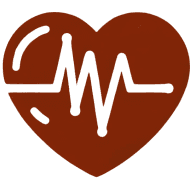Heart disease remains a leading cause of death globally. However, advancements in medical science have provided us with a variety of treatment options. This blog post aims to shed light on these options, helping patients and their loved ones make informed decisions. We will delve into traditional treatments, emerging therapies, and lifestyle modifications that can contribute to managing heart disease effectively.
Traditional Treatment Options
Traditional treatment options for heart disease have been around for decades, saving countless lives. These include medications, surgical procedures, and devices implanted in the body.
Medications play a crucial role in managing heart disease. Doctors prescribe drugs to lower blood pressure, reduce cholesterol levels, and prevent blood clots. Beta-blockers, for instance, reduce the heart's workload by slowing the heart rate and decreasing blood pressure. Statins help lower cholesterol levels, reducing the risk of plaque formation in the arteries.
Surgical procedures are another pillar of heart disease treatment. Angioplasty, for example, involves inserting a small balloon into a blocked artery to widen it and improve blood flow. In more severe cases, coronary artery bypass grafting (CABG) may be necessary. This procedure involves using a healthy artery or vein from the body to bypass a blocked coronary artery.
Implantable devices like pacemakers and defibrillators also play a vital role. A pacemaker helps regulate the heart rhythm, while a defibrillator can shock the heart back into a normal rhythm during a cardiac arrest.
Emerging Therapies
As medical science progresses, new and innovative therapies for heart disease are emerging. These include gene therapy, stem cell therapy, and personalized medicine.
Gene therapy aims to treat heart disease at the genetic level. Scientists are exploring ways to use genes to stimulate the growth of new blood vessels in the heart. This could potentially bypass blocked arteries, similar to CABG but without the need for surgery.
Stem cell therapy is another promising field. The idea is to use stem cells to repair damaged heart tissue. While still in the early stages of research, initial results are encouraging.
Personalized medicine is a more holistic approach. It involves tailoring treatment based on the patient's genetic makeup, lifestyle, and other factors. This could lead to more effective and efficient treatment plans.
Lifestyle Modifications
Lifestyle modifications are a crucial part of heart disease treatment. They can help manage symptoms, slow disease progression, and even prevent heart disease in the first place.
A healthy diet is paramount. It should be rich in fruits, vegetables, whole grains, and lean proteins. Limiting salt, saturated fats, and sugars is also important.
Regular exercise is another key component. It can help maintain a healthy weight, lower blood pressure, and improve heart health. Even moderate activities like walking or gardening can make a significant difference.
Quitting smoking and limiting alcohol consumption are also essential. Both smoking and excessive drinking can damage the heart and blood vessels, increasing the risk of heart disease.
The Role of Mental Health
Mental health plays a significant role in heart disease treatment. Stress, anxiety, and depression can all exacerbate heart disease symptoms.
Stress management techniques, such as meditation, deep breathing, and yoga, can help. Regular exercise and a healthy diet can also boost mental health.
Psychotherapy can be beneficial for those struggling with anxiety or depression. In some cases, medication may be necessary. It's important to discuss these issues with a healthcare provider.
The Importance of Regular Check-ups
Regular check-ups are vital in managing heart disease. They allow doctors to monitor the disease's progression and adjust treatment plans as necessary.
During a check-up, the doctor will likely perform a physical exam, ask about any new symptoms, and review medication. They may also order tests, such as an electrocardiogram (EKG) or blood tests.
It's important to be open and honest with the doctor during these check-ups. This allows them to provide the best possible care.
The Future of Heart Disease Treatment
The future of heart disease treatment is promising. With ongoing research and technological advancements, we can expect even more effective and less invasive treatments in the future.
Artificial intelligence (AI) is one area with significant potential. AI could help doctors diagnose heart disease earlier and more accurately. It could also aid in developing personalized treatment plans.
Nanotechnology is another exciting field. It could potentially allow for targeted drug delivery, reducing side effects and improving treatment efficacy.
While these advancements are exciting, it's important to remember that prevention is the best cure. Maintaining a healthy lifestyle is the most effective way to prevent heart disease.
Wrapping Up: Navigating Heart Disease Treatment Options
Heart disease treatment is a multifaceted approach, encompassing traditional treatments, emerging therapies, and lifestyle modifications. Regular check-ups and mental health management also play crucial roles. As we look to the future, advancements in technology and medicine promise even more effective treatments. However, prevention remains key. A healthy lifestyle is the best defense against heart disease.

